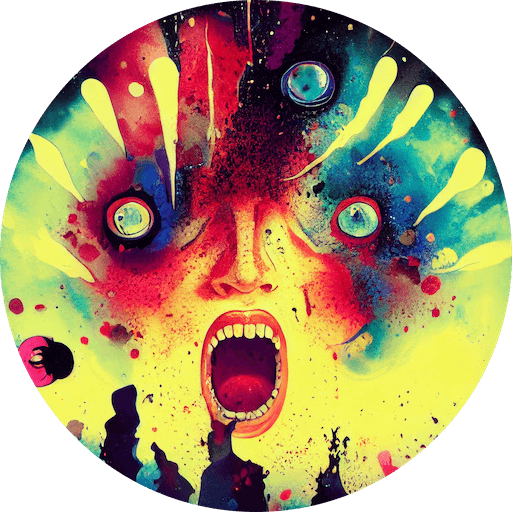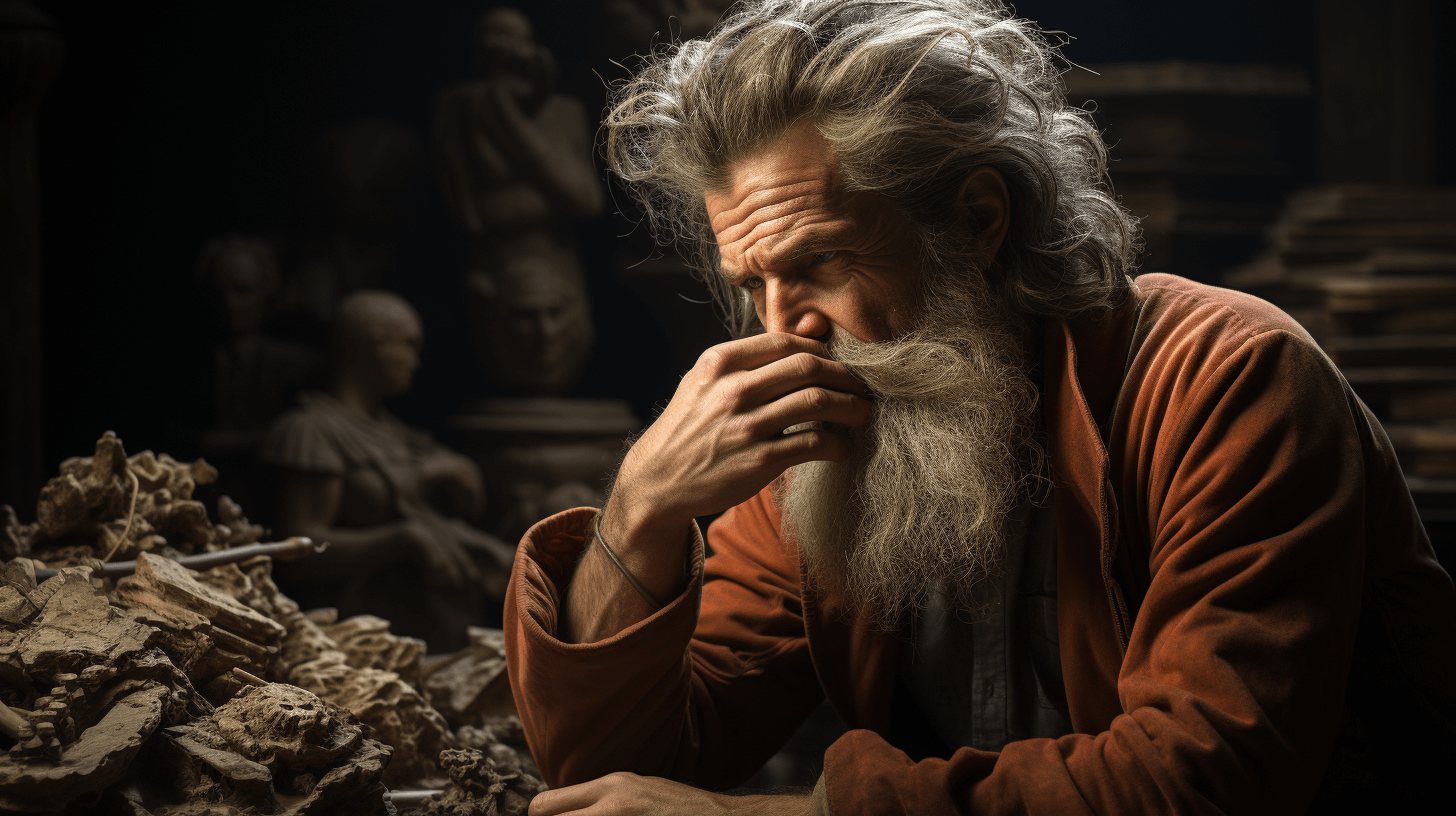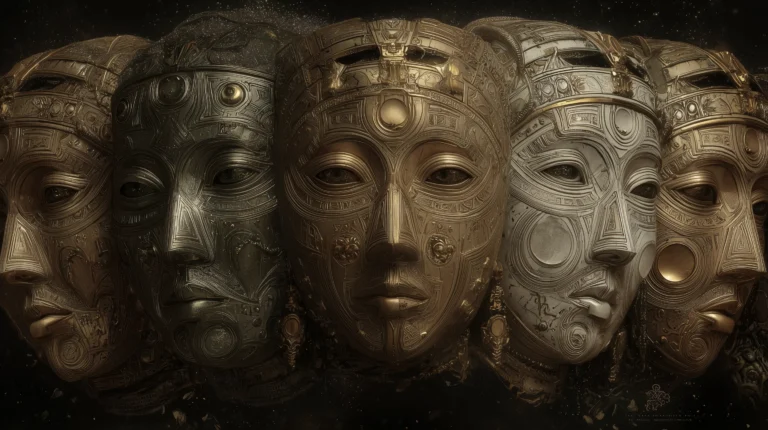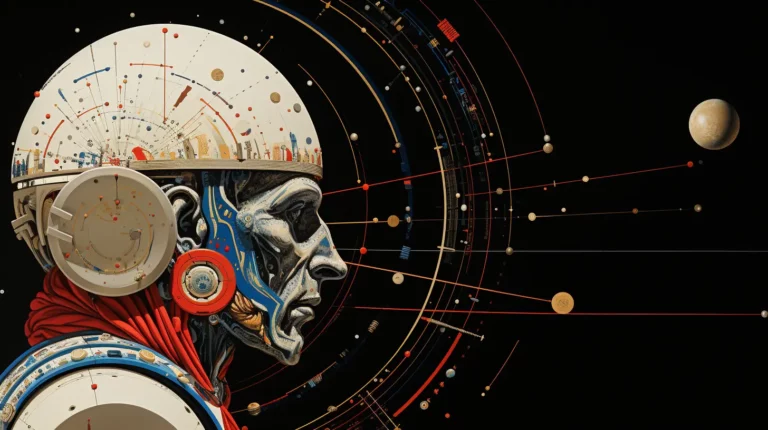Understanding Heraclitus
Introduction
For anyone interested in the ancient world of philosophy, the name Heraclitus is likely to spark interest and curiosity. This Greek thinker from Ephesus, active around 500 BCE, has a reputation for being cryptic, intriguing, and profoundly impactful. Despite the seeming complexity of his thoughts, his philosophy bears relevance even today and offers insights for anyone from beginners to experts. If you are a beginner wanting to delve into the world of Heraclitus, this composition is tailored just for you.
Historical Background
Heraclitus lived in the city of Ephesus, in what is now modern-day Turkey. He belonged to a period known as the “Pre-Socratic” era, named so because the philosophers from this period preceded Socrates, who is often considered a seminal figure in Western philosophy. The Pre-Socratic thinkers primarily focused on explaining the nature of the world and the basic substance that makes up reality.
Let’s explore some of his key ideas in greater detail:
The Doctrine of Change
When one hears of Heraclitus, the concept that most often comes to mind is the “Doctrine of Change.” This can be a challenging idea to grasp for someone who is new to philosophy, but it is also incredibly relatable once understood, touching on aspects of life that we all experience. To put it simply, Heraclitus believed that change is the only constant in the universe.
Perhaps the most famous quote attributed to Heraclitus is:
“You cannot step into the same river twice.”
Let’s unpack this. On the surface, it means that the water you step into at one moment is not the same water you would step into the next moment. The water flows, new water molecules replace the old ones, and so, it’s not the same river, even if just a second has passed.
However, this quote has deeper implications. Heraclitus is suggesting that everything in the universe is like that river. Every object, person, or situation is in a constant state of change, evolving or decaying, even if we can’t always see it happening. It highlights the impermanence of all things and teaches us to embrace the reality of change rather than resisting it.
Why Is This Doctrine Important?
You might wonder, why does this matter? Why did Heraclitus place such emphasis on change? The reason is that by acknowledging and understanding the ever-changing nature of life, we are better equipped to navigate its challenges. Accepting that change is inevitable can free us from the anxiety of trying to hold onto things as they are. It allows us to adapt, grow, and find contentment even when faced with the uncertainties that life often presents.
How Does This Apply to You?
Think about your own life. Have you ever looked at old photos and realized how much you’ve changed? Or have you ever been surprised at how your feelings toward someone or something have evolved over time? This is Heraclitus’ philosophy in action. Your past self is like a river you’ve stepped into before—a river that has since moved on, altered by the events and experiences that have flowed through it.
The Hidden Depth of Simplicity
While Heraclitus’ idea may seem simple, its implications are profound. By recognizing the persistent flux in the world, we also learn the importance of adaptability and the futility of rigid thinking. Life, after all, is a series of changes—some small, some monumental, but always ongoing. The Doctrine of Change invites us to participate more fully in this dynamic existence, offering a lens through which to see life’s challenges not as roadblocks, but as ever-changing landscapes to explore.
By diving into Heraclitus’ Doctrine of Change, you’re not just learning about ancient wisdom but gaining a tool that can make your contemporary life more meaningful and manageable. The river of life flows constantly, and according to Heraclitus, that’s something we should not just accept, but celebrate.
Fire as the Primary Substance
Another striking aspect of Heraclitus’ philosophy is his choice of fire as the fundamental substance or essence of reality. This idea might seem a little abstract or even poetic to a beginner, but its symbolism and meaning hold key insights into Heraclitus’ broader worldview.
Heraclitus is famously quoted as saying that
“all things are an exchange for fire, and fire for all things.”
In other words, fire acts as the primary element from which everything emerges and to which everything ultimately returns. But why fire?
Why Fire?
If you’ve ever watched a fire in a hearth or a bonfire at a campsite, you’ve probably been fascinated by its ever-changing nature. Fire flickers, roars, diminishes, and grows. It can turn wood into ash and release energy in the form of heat and light. For Heraclitus, fire encapsulated his central doctrine that everything is in a constant state of change.
In ancient times, many philosophers tried to identify the primary substance from which everything else is made. Some thought it was water, others thought it was air or earth, but Heraclitus chose fire for its transformative nature. Fire doesn’t just change; it causes change in other things.
What Does Fire Mean for Us?
You might be wondering how this concept of fire as the primary substance relates to you or to the modern world. It’s all about transformation and change—two principles that are just as relevant today as they were in ancient Greece.
Think about the processes that allow you to live your daily life: the metabolic reactions in your body, the electricity powering your home, or even the emotional and intellectual ‘sparks’ that inspire you to think and create. In a way, these are all manifestations of Heraclitus’ fire—forces of transformation that enable change, growth, and decay.
The Symbolism of Fire
The choice of fire serves as a powerful symbol, as well. Fire can be seen as destructive when it burns down a forest, but it also allows for new growth and renewal. Similarly, changes in our own lives can feel destructive but may also lead to new opportunities and personal growth.
Heraclitus’ concept of fire also invites us to consider the interconnectedness of all things. Just as a fire cannot burn without fuel, oxygen, and heat—components that are transformed in the process—we too are in a constant exchange with the world around us, affecting and being affected by it.
Making Sense of the Complex Through the Simple
While the idea of fire as the foundational element of the universe may seem complex or abstract, its essence is deeply practical. It asks us to embrace the inherent changeability of life and to recognize the forces of transformation at work around us. It’s a concept that not only helps us understand Heraclitus’ view of the world but also offers us a framework for navigating our own ever-changing lives.
So the next time you find yourself gazing at a flickering candle or warming your hands at a bonfire, you might just see it as a small reflection of the grand, transformative processes that Heraclitus believed underpin our entire universe.
The Unity of Opposites
Another intriguing and foundational element in Heraclitus’ philosophy is the concept of the “Unity of Opposites.” This might sound paradoxical or confusing at first, especially for those new to philosophical concepts. However, when we delve into what Heraclitus actually means, we find that it’s a principle that touches upon many areas of our everyday lives.
One of the best-known quotes attributed to Heraclitus in relation to this concept is:
“Day and night are one.”
At first glance, this statement appears counterintuitive. After all, day and night seem to be distinctly different phenomena. However, what Heraclitus aims to communicate is that opposites like day and night are interconnected; they’re two sides of the same coin. In other words, day turns into night and vice versa, creating a unified cycle that is interdependent.
Breaking Down the Paradox
Imagine a seesaw at a playground. When one side is up, the other is down. Though they are opposite motions, they are part of the same activity. In the same way, Heraclitus posits that contrasting forces or elements are interconnected, part of a greater whole that can’t exist without both sides. So, even though they appear to be conflicting, they are actually complementary.
Real-World Applications
Think about the natural world: life and death, growth and decay, heat and cold. These pairs might seem like opposites, but upon closer inspection, they’re interconnected. Plants die in the winter but provide nutrients to the soil, which in turn fosters new growth in the spring. This cyclical relationship echoes Heraclitus’ view of the unity of opposites, suggesting that what appears to be in conflict is often part of a larger, harmonious system.
In human experience, the same can be true. Happiness and sorrow, success and failure, love and hate—all these pairs are interconnected aspects of our lives that contribute to our overall understanding of the world and ourselves.
Why It Matters to You
Understanding the unity of opposites can offer a more nuanced way of dealing with challenges. When you face hardship or difficulty, Heraclitus’ philosophy suggests that there’s an interconnected positive element that comes with it—perhaps in the form of growth, learning, or a new perspective. Rather than seeing situations as merely good or bad, we can understand them as complex, interconnected events that have the capacity for both.
A Guiding Principle for Life
The unity of opposites encourages us to embrace complexity and seek balance. It teaches us that life isn’t simply a series of black and white events, but a rich tapestry woven from a spectrum of experiences and emotions. By recognizing the interconnectedness of opposites, we can better appreciate the complexity of life and the opportunities for growth and understanding that come with it.
So the next time you find yourself stuck in a mindset that sees only polarities—good or bad, success or failure—remember Heraclitus’ wisdom about the unity of opposites. It might just offer you the broader perspective you need to navigate the complexities of life.
Logos
Heraclitus’ concept of “Logos” is one of his most influential yet often misunderstood ideas. While the term might seem esoteric or inaccessible at first, especially to those new to philosophy, it’s actually a remarkably relatable and relevant concept. So let’s dive into understanding what Logos means in the context of Heraclitus’ philosophy.
Heraclitus once said,
“Listening not to me but to the Logos, it is wise to agree that all things are one.”
Here, Heraclitus is emphasizing the importance of understanding Logos, a concept that transcends individual opinion or perspective. He invites us to consider Logos as the governing principle or the rational order underlying everything in the universe.
What Exactly Is Logos?
The term “Logos” has been translated in various ways, such as “word,” “reason,” or “principle.” For Heraclitus, it signifies the rational structure embedded in the fabric of the universe. It’s like an unseen, underlying rule that explains why things are the way they are. In more modern terms, you could think of it as the “operating system” that runs the universe, organizing chaos into order.
Why Does Logos Matter?
If you’re wondering why an ancient philosophical concept should be of any relevance to you, consider this: Heraclitus’ idea of Logos helps us understand why things happen the way they do and how we can live in harmony with the world. It’s a lens through which we can view not only big cosmic events but also the smaller, everyday occurrences in our lives.
Logos in Everyday Life
Suppose you’ve ever wondered about the natural “order” of things—why seasons change, why some events seem coincidental, or even why certain things in your life seem to follow a particular pattern. In that case, you’re already thinking in the realm of Logos. It’s about recognizing the invisible threads that tie the universe together in a coherent way.
How to Engage with Logos
One practical way to engage with Heraclitus’ concept of Logos is to adopt a mindset that seeks to understand the interconnectedness and order underlying life’s seeming randomness. When faced with challenges, for example, instead of despairing at the chaos, you could ask yourself, “What can this teach me?” or “How is this event part of a larger pattern or order?” This approach can offer solace and insight, aligning your personal experiences with the broader rational structure that Heraclitus describes.
Making Sense of It All
Understanding Logos gives us a way to make sense of the complexities and contradictions that we encounter in life. It reassures us that there is a fundamental order and rationality to the universe, even if we can’t always see it immediately. This understanding can serve as a foundation for a more harmonious and fulfilling life, allowing us to see challenges and opportunities as part of a grand, interconnected scheme.
So, the next time you’re pondering the ‘why’ and ‘how’ of the universe—or even just your own life—remember Heraclitus’ Logos. It’s a concept that invites us to look deeper into the complexities of existence, encouraging a more harmonious way of living and thinking.
Legacy and Influence
When we discuss the legacies of ancient philosophers, Heraclitus certainly stands out as a thinker whose ideas have rippled through time, affecting various areas of study, from philosophy to science and even spirituality. For those who are new to philosophy or ancient history, you might be wondering why an individual from over 2500 years ago still commands our attention. Let’s delve into how Heraclitus’ ideas have endured and why they continue to be studied and debated today.
One of Heraclitus’ most famous statements is that
“character is destiny.”
This adage has been cited across various contexts—from self-help books to business seminars—because of its universal applicability. The idea that one’s personal qualities shape one’s fate resonates just as strongly today as it did in ancient times, providing a clear example of Heraclitus’ lasting influence.
The Breadth of His Impact
Heraclitus’ philosophical ideas, particularly his Doctrine of Change and concept of Logos, have found a place in a range of disciplines. Scientists refer to his ideas when discussing the laws of nature and the importance of change in the evolutionary process. Religious thinkers and spiritual guides often employ his concept of Logos as a way to describe the divine or universal order. His thoughts even appear in literature and art, influencing how we understand the interplay of opposites and the inevitability of change.
Bridging the Gap Between Ancient and Modern Thought
Heraclitus’ philosophy has been a bridge between different eras and schools of thought. For instance, his Doctrine of Change can be seen as a precursor to Darwin’s theory of evolution. His concept of Logos shares similarities with the Eastern philosophies of Taoism and Buddhism, particularly in the understanding of a unifying principle that guides the universe.
Why Does His Legacy Matter to You?
So, why should someone new to philosophy care about Heraclitus’ legacy? Understanding his enduring influence allows us to see that the questions he grappled with—questions about change, order, and the nature of reality—are timeless. They’re issues we all confront in one way or another, regardless of the era we live in. Learning about Heraclitus offers not only a window into ancient thought but also a mirror reflecting our own lives and struggles.
A Practical Takeaway
Heraclitus once said,
“Wisdom is the oneness of mind that guides and permeates all things.”
This search for wisdom, a cornerstone of his philosophy, is something that each of us can participate in, whether we’re scholars, professionals, or simply curious individuals. His philosophy is not a relic of the past but a living, breathing set of ideas that continue to provide insights into the challenges and opportunities we face today.
By exploring the legacy and influence of Heraclitus, you’re not just taking a history lesson; you’re engaging with ideas that can genuinely enrich your understanding of the world and even guide your actions within it. Thus, Heraclitus remains a vital figure not merely in the annals of philosophy but in the ongoing story of human thought and experience.
Conclusion
As we come to the end of this exploration of Heraclitus and his philosophical concepts, you might be wondering, “What’s the takeaway? Why does this ancient philosopher still matter in our fast-paced, modern world?” Let’s summarize what we’ve learned and why these lessons are not just historical footnotes but living insights that can help us navigate the complexities of our own lives.
One of Heraclitus’ most famous sayings encapsulates his Doctrine of Change:
“You cannot step into the same river twice.”
This idea, though simple on the surface, offers profound wisdom for understanding the nature of life itself. Everything is in a constant state of change, including ourselves. Understanding and accepting this can be liberating, making it easier to cope with life’s inevitable ups and downs.
Whether he’s speaking of fire as the essence of all things, the underlying Logos that brings order to the universe, or the intricate relationship between opposing forces, Heraclitus provides frameworks that are surprisingly modern and relevant. His ideas encourage us to see the world and our place within it in more nuanced, complex ways.
The true genius of Heraclitus lies not just in the originality of his ideas but in their lasting power. His teachings continue to inspire debates and reflections across multiple disciplines, from philosophy and science to religion and ethics. His ideas are not static; they evolve as we apply them to new questions and challenges, proving the adaptability and enduring relevance of his thinking.
The allure of Heraclitus’ teachings lies in their invitation for personal reflection and engagement with the complexities of existence. Heraclitus himself offers a striking observation when he says,
“The road up and the road down are the same thing.”
This insight encourages us to understand that the difficulties and joys of life are interconnected, made of the same substance. It’s a reassuring perspective, particularly during times when we find ourselves wrestling with equilibrium or striving to comprehend the complexities of our world.
So why should a beginner in philosophy, or anyone for that matter, care about Heraclitus today? Because his ideas offer more than just an academic exercise. They provide practical wisdom that can help us live more fulfilling and meaningful lives, showing us how to engage with a world that is in constant flux and how to find order within the chaos.
As we conclude this journey into Heraclitus’ world, remember that the wisdom of the past can often shine a light on the problems of the present. Heraclitus invites us all to become wiser, more adaptable individuals capable of navigating the ever-changing river of life. And in a world that seems more uncertain and complex than ever, that is a lesson worth taking to heart.
The River of Heraclitus
In the waters of a river, ever-shifting, ever-new,
Heraclitus stands beside us, whispers truths we never knew.
“You cannot step twice,” he murmurs, “in the same relentless flow,
For the waters keep on turning, as do all things here below.”
In the hearth of cosmic wonders, there’s a fire we cannot see,
It’s the essence and the Logos, the world’s hidden symphony.
It dances with the atoms, and it whispers in the breeze,
In its flames, we find the order, in its warmth, our hearts find ease.
Day gives way to night’s embrace, in an endless cosmic dance,
Where the sun and moon are partners, in this intricate romance.
Heraclitus smiles gently, says, “Opposites are truly one,
Like the lyrics and the music in a song that’s never done.”
Ancient words in modern hallways, echoing through space and time,
Character as destiny, a simple thought, yet so sublime.
Today we speak his language, though we never say his name,
In the world of constant changes, Heraclitus stakes his claim.
So we stand beside the river, contemplating flow and change,
Realizing through his wisdom, life’s expansive, endless range.
And we step into the waters, not just once but time again,
For the lesson of Heraclitus is that change is life’s true zen.







